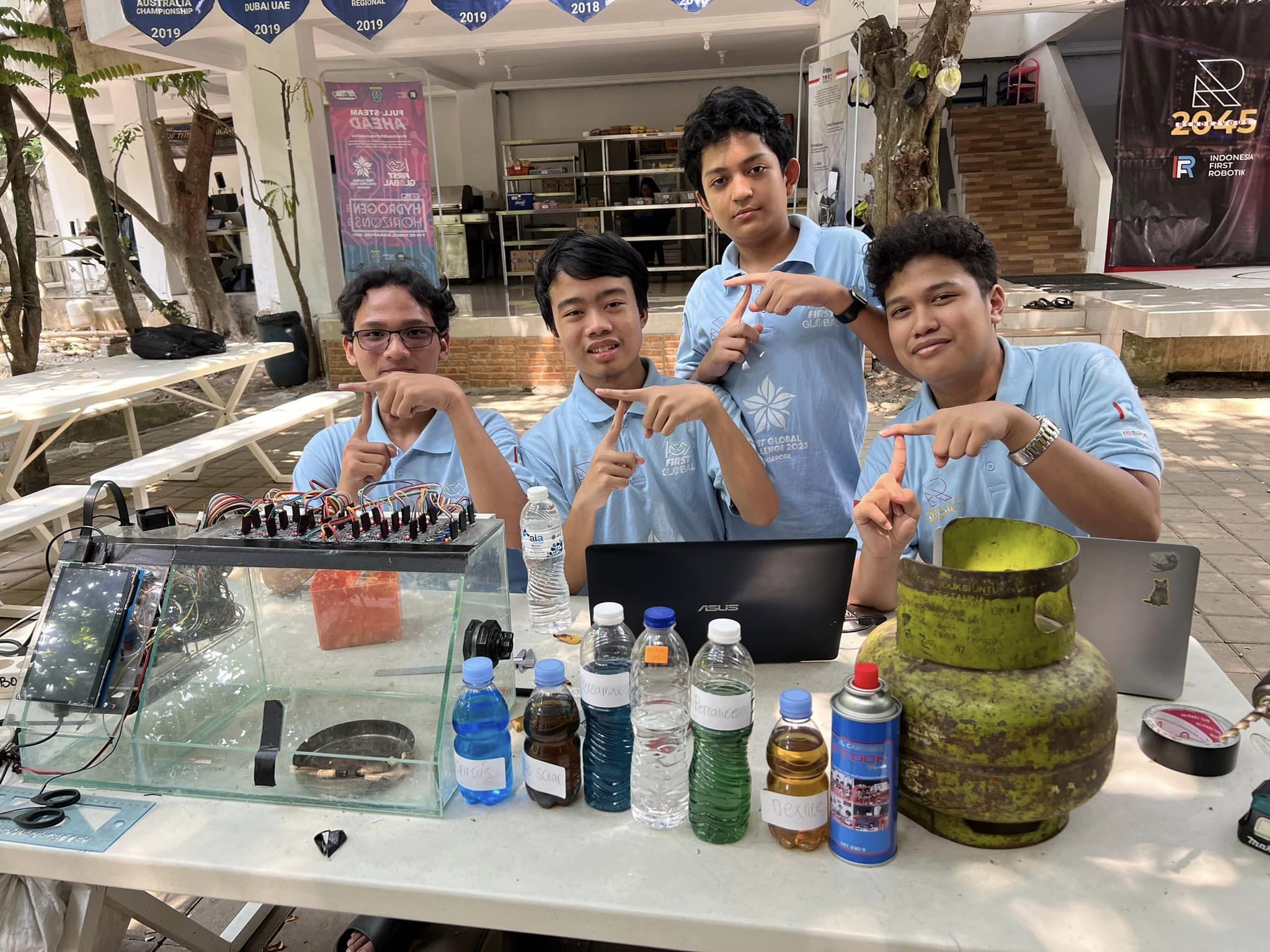In the ever-evolving landscape of technology and energy, the pursuit of cleaner, more sustainable sources of power has become a critical imperative. One of the most promising prospects in this endeavor is the utilisation of hydrogen as a fuel source.
 In this context, Team Indonesia from TechnoNatura has embarked on a remarkable journey of research and experimentation, delving into the hydrogen contents of various hydrocarbon fuels and harnessing the power of Artificial Neural Networks (ANN) for predictive analysis. This essay explores the significance of their work and the innovative approach they have adopted.
In this context, Team Indonesia from TechnoNatura has embarked on a remarkable journey of research and experimentation, delving into the hydrogen contents of various hydrocarbon fuels and harnessing the power of Artificial Neural Networks (ANN) for predictive analysis. This essay explores the significance of their work and the innovative approach they have adopted.
Understanding The Energy Evolution in New Technology: Hydrogen Content Analysis and ANN Prediction
In the ever-evolving landscape of technology and energy, the pursuit of cleaner, more sustainable sources of power has become a critical imperative. One of the most promising prospects in this endeavor is the utilisation of hydrogen as a fuel source. In this context, Team Indonesia from TechnoNatura has embarked on a remarkable journey of research and experimentation, delving into the hydrogen contents of various hydrocarbon fuels and harnessing the power of Artificial Neural Networks (ANN) for predictive analysis. This essay explores the significance of their work and the innovative approach they have adopted.
Hydrogen: A Clean Energy Solution Hydrogen, often heralded as the "fuel of the future," holds immense potential as a clean energy solution. Its combustion produces only water vapor, making it a highly attractive option for reducing greenhouse gas emissions and combating climate change. However, to fully embrace hydrogen as an energy source, it is crucial to identify efficient methods for its production, storage, and utilization.
Research Focus: Hydrogen Content Analysis Team Indonesia's research is centered around the quantification of hydrogen content in a range of hydrocarbon fuels. These fuels include LPG, Propane, Dexlite, Pertalite, Alcohol, Pertamax, Bio solar, and Methanol. By understanding the varying hydrogen content in these fuels, the team aims to provide insights into their potential as hydrogen sources, thus contributing to the larger conversation about clean energy transitions.
Experimental Approach: ANN and Gas Sensors To achieve their objectives, Team Indonesia has adopted a multi-pronged experimental approach. They employ Artificial Neural Networks (ANN) – a subset of machine learning – to predict the hydrogen source based on the characteristics of the hydrocarbon fuel being analyzed. ANN excels in pattern recognition and complex data analysis, making it an ideal tool for their purpose.
In conjunction with ANN, the team employs a sophisticated identification system named "H2 Nose." This system consists of nine gas sensors that detect and analyse the composition of gases, including hydrogen, within the fuels. These sensors are connected to an Arduino microcontroller and the Nvidia Jetson Orin Nano, a high-performance computing platform designed for AI applications. This combination of hardware enables real-time data collection, analysis, and communication, forming the backbone of their research setup.
Potential Impacts and Future Prospects The implications of Team Indonesia's work are profound. By accurately quantifying the hydrogen content in various hydrocarbon fuels and developing predictive models through ANN, they contribute to the advancement of hydrogen-based energy solutions. The ability to identify suitable hydrogen sources among commonly used fuels can significantly accelerate the adoption of hydrogen technologies, offering cleaner alternatives in industries such as transportation, power generation, and beyond.
Moreover, the innovative combination of gas sensors, microcontrollers, and AI processing units showcases the synergy between cutting-edge hardware and software. This approach not only enhances accuracy and efficiency but also lays the foundation for further advancements in data-driven energy research.
Conclusion
In the midst of global concerns about climate change and the pressing need for sustainable energy solutions, Team Indonesia's research stands as a beacon of innovation and progress. Their exploration of hydrogen content in various hydrocarbon fuels and the integration of ANN-based predictive models present a dynamic and comprehensive approach to understanding and utilizing cleaner energy sources. As their work continues to evolve, it holds the promise of shaping a greener and more sustainable energy landscape for Indonesia and the world.
- Log in to post comments
